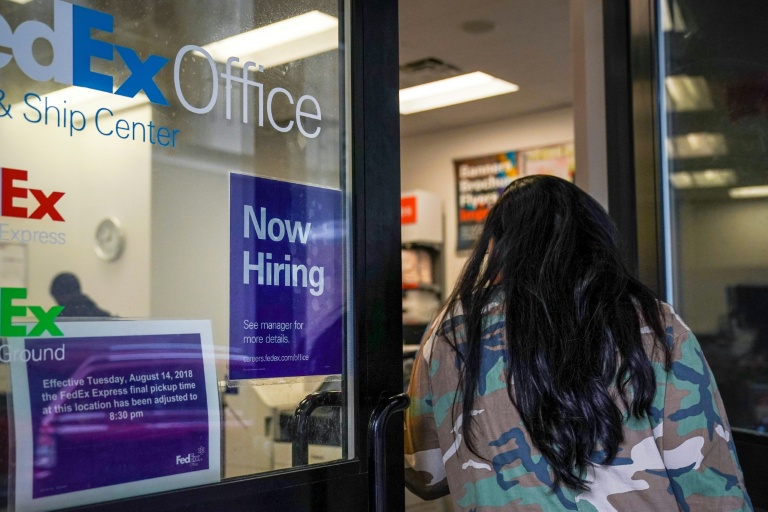Data showing US private sector has fallen to a 14-year low dampened sentiment but increased expectations of an interest rate cut next month (Drew Angerer)
US and European stocks slumped Thursday as investors weighed another wave of corporate results, economic data and the likelihood of another interest rate cut.
The lack of US data and the ongoing government shutdown is starting to make investors nervous, said Chris Beauchamp, chief market analyst at investing and trading platform IG.
Investors and policymakers alike have been left in a fog as the shutdown of much of the US government has delayed the release of key data on employment, trade, retail sales and others.
“Financial markets find themselves groping around in the dark, a point echoed by FOMC member Goolsbee, who remains nervous about cutting rates without data to go on,” said Beauchamp
Chicago Federal Reserve President Austan Goolsbee, who has been supportive of lowering interest rates, told CNBC in an interview that making cuts amidst a lack of data on inflation made him “uneasy”.
Investors still see the US Federal Reserve cutting interest rates at its next meeting in December.
With key economic data produced by the US government unavailable due to the shutdown, investors have been turning to private data sources.
A report by outplacement firm Challenger, Gray & Christmas said the number of layoff announcements in October hit the highest level in 22 years.
The report “painted a grim picture of the jobs market” said Joe Mazzola, head trading and derivatives strategist at Charles Schwab brokerage.
The report found that this year has been the worst for layoffs since 2020, when the labour market was decimated by the pandemic, and that hiring has slowed to a 14-year low.
However the report “bolstered the case for a Federal Reserve rate cut in December despite Chairman Jerome Powell’s unexpectedly hawkish tone following the Fed meeting last month,” Mazzola added.
The Challenger report followed a stronger-than-expected report from payrolls firm ADP on Wednesday that showed private employers in the United States added jobs in October for the first time since July.
Investors were also digesting news that a majority of the US Supreme Court was sceptical about the legality behind a swath of Trump’s sweeping tariffs, which also lent support to equities.
“Is it good news? Paradoxically, not really,” said Swissquote Bank senior analyst Ipek Ozkardeskaya.
“It brings uncertainty, renewed volatility, potentially more than $100 billion in refunds the US government may owe to other countries according to Bloomberg, and a deeper fiscal deficit,” she said.
